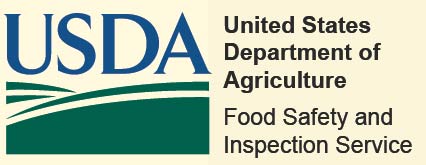Yesterday in the USDA Blog, to which various officials of the U.S. Department of Agriculture (USDA) and the numerous agencies under its umbrella contribute, a Food Safety and Inspection Service (FSIS) offical posted a strong response to a recent New York Times article that claimed an inspector shortage at FSIS would "[raise] the possibility that contaminated products could reach consumers."
In the blog post, entitled "Setting the Record Straight on FSIS Inspector Vacancy Rates," Aaron Lavallee, FSIS' deputy assistant administrator for the Office of Public Affairs and Consumer Education, argued, "vacancies within the agency do not mean there are less inspectors on the job in our nation’s meat plants." Lavallee said FSIS is legally required to have a sufficient number of inspectors present in every single meat and poultry plant in the country, adding that all plants do have the requisite number of inspectors.
Lavallee continued:
The New York Times article was based on misleading and inaccurate information, and to the paper’s credit it ultimately ran at least a partial correction. The article was supposedly based on data from a Freedom of Information Act (FOIA) request by an outside group called Food & Water Watch — but Food & Water Watch had not yet received that FOIA report. Yet, they told the Times they had received it, and the Times unfortunately reported faulty information without verification.
The FOIA referenced in the article is actually just being released today. You can view it here. The report will show that, at the end of Fiscal Year 2013, there was a vacancy rate of 7.64% among FSIS’ inspectors. Food & Water Watch claimed, and the New York Times reported, that inspectors in the Raleigh District faced an 11% vacancy rate. In fact, the vacancy rate there is currently 8.27%.
Like all organizations, FSIS has a vacancy rate that fluctuates as inspectors leave work or retire. FSIS is working to fill open positions. FSIS always prioritizes food safety inspection and dedicates significant resources toward ensuring that all plants have the required number of inspectors. Again, if a plant does not have enough inspectors, it is illegal for that plant to operate.
It is irresponsible to attempt to confuse FSIS vacancy rates with plant inspector shortages and then imply that meat and poultry products are less safe as a result. There is no connection between recent recalls and FSIS vacancy rates, and any claims that these issues are linked are false.
Whether in relation to Lavallee's post or by coincidence, yesterday FSIS also issued a revised version of FSIS Directive 5500.2, Significant Incident Response. The directive "outlines the procedures that FSIS' Emergency Management Committee (EMC) and divisions within FSIS are to follow while managing significant incidents that may adversely affect public health or food defense," according to the document. The agency said it is reissuing this directive to reflect changes resulting from FSIS’ recent reorganization and to further clarify when a recall would trigger an FSIS Form 5500-4, Incident Report (IR).



